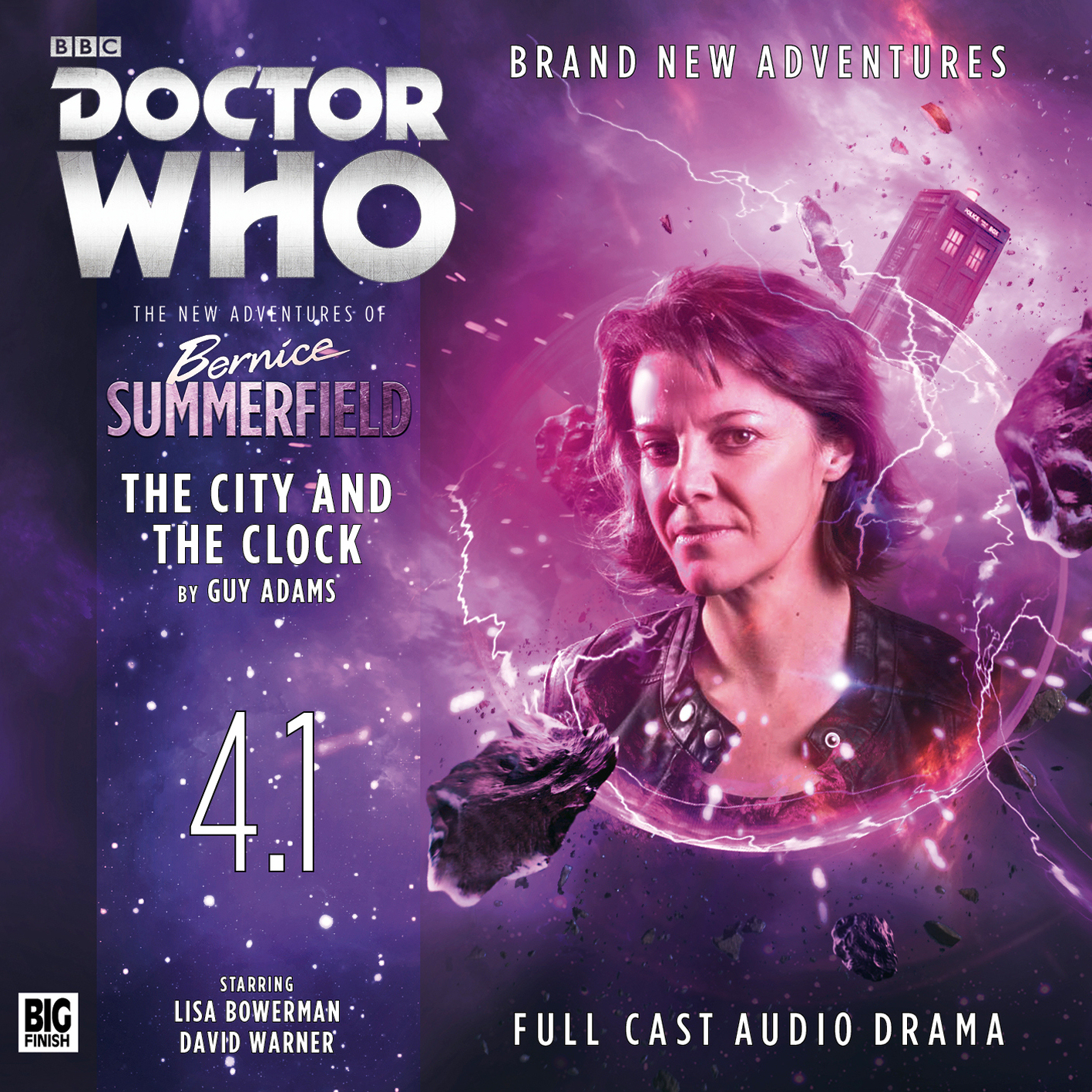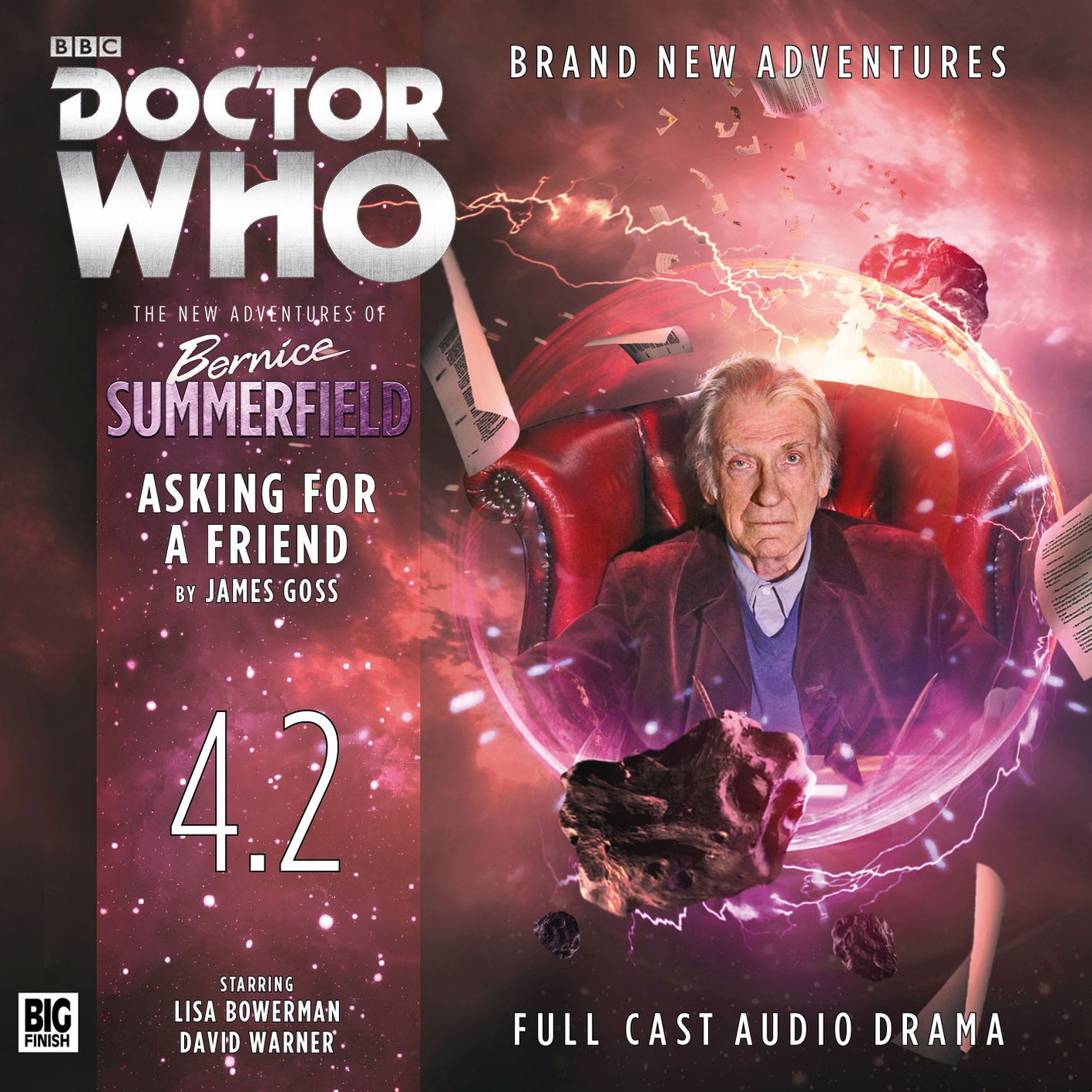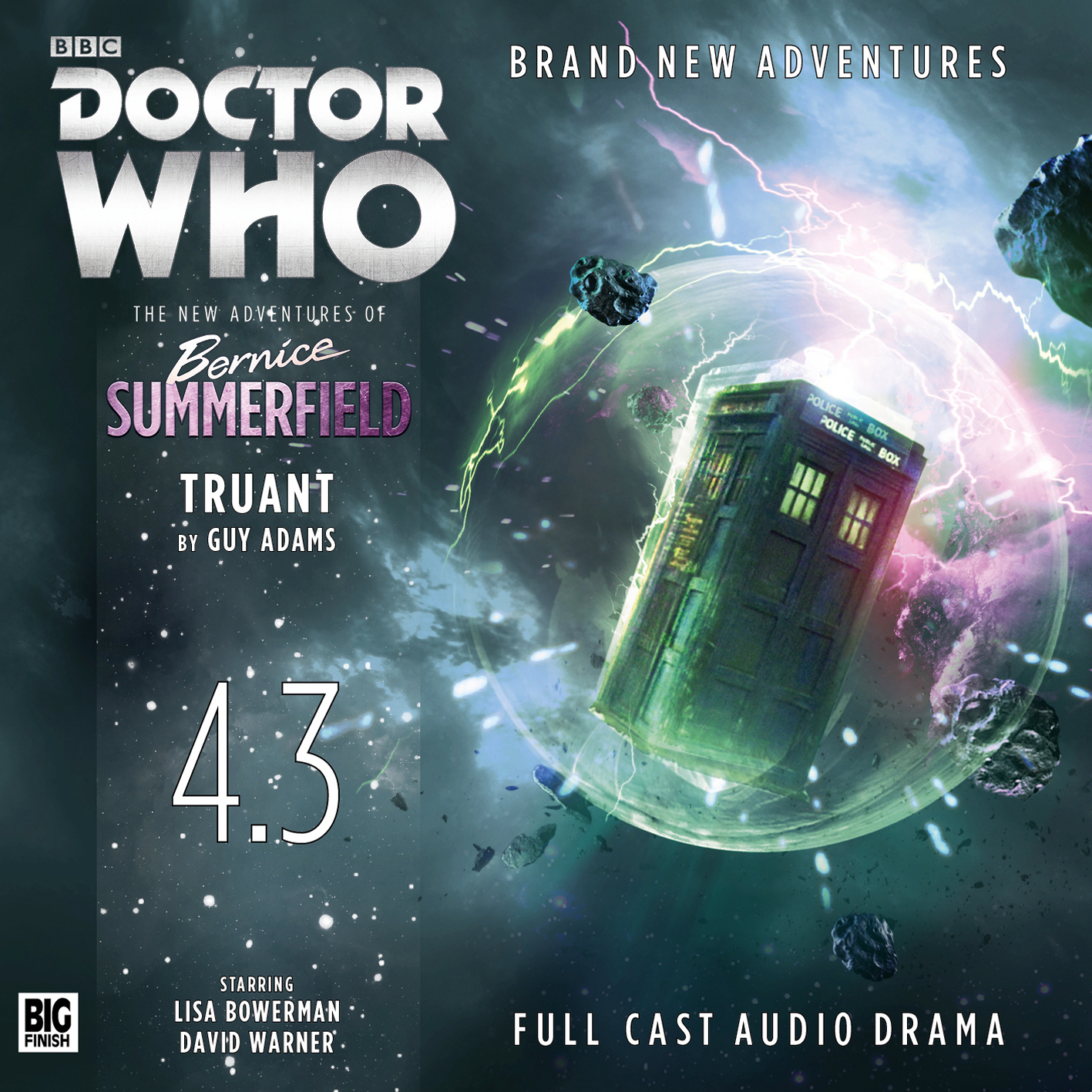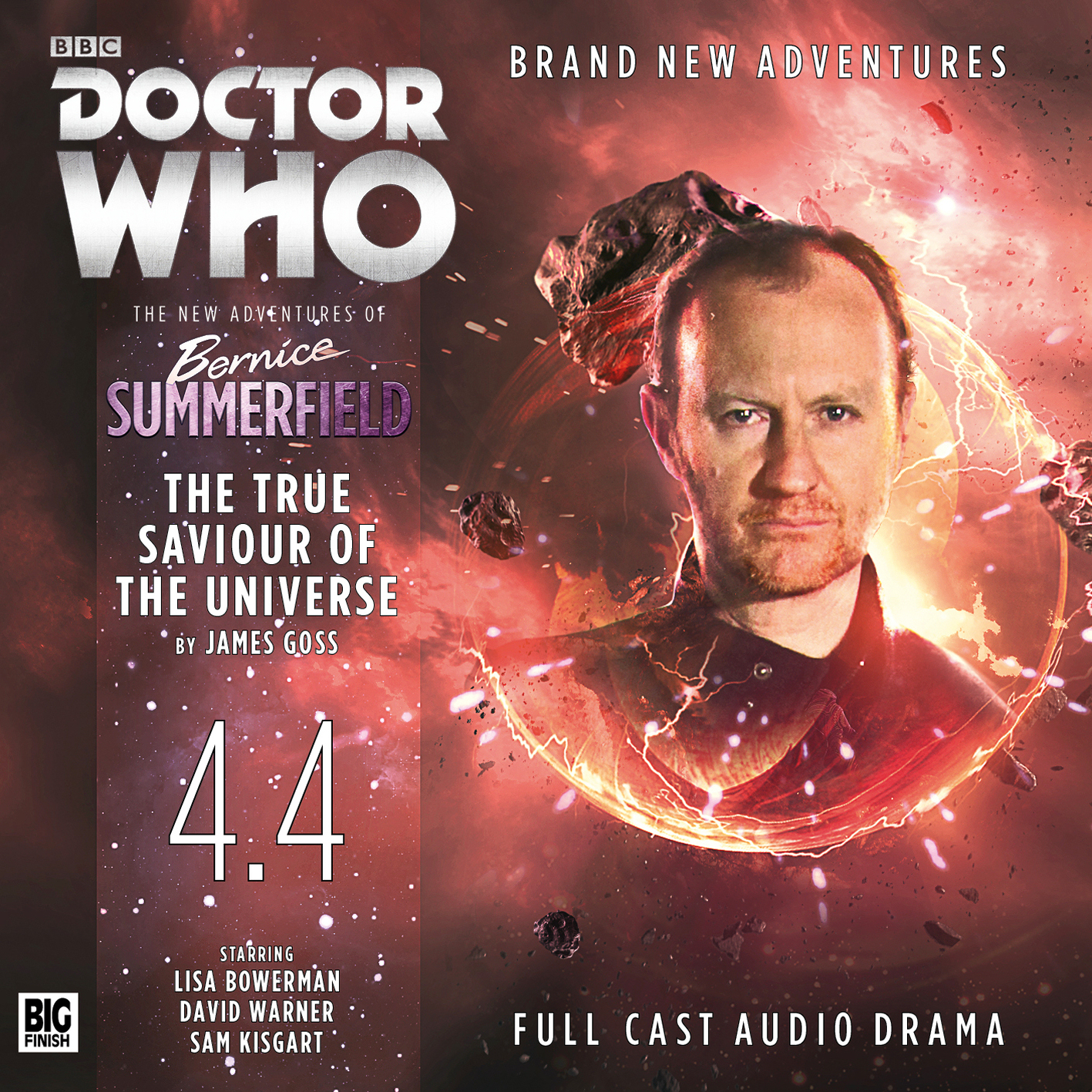The Battle of Ranskoor Av Kolos
Writer: Chris Chibnall
Director: Jamie Childs
Executive Producers: Chris Chibnall and Matt Strevens
Starring: Jodie Whittaker, Bradley Walsh, Tosin Cole, Mandip Gill, Phyllis Logan, Mark Addy, Percelle Ascott, Samuel Oatley, Jan Le
BBC One (UK)
First broadcast Sunday 9th December 2018
The title for series 11's finale might be something of a tongue twister, but it's of a piece with Chris Chibnall's world-building, where despite TARDIS translation, human and alien cultures find one another's worlds and identities difficult to say. Yaz's exchange with Paltraki about his home world is similar to related dialogue in 'The Ghost Monument', for instance, while 'Tim Shaw' is itself a mangling of the Stenza's actual name: Chibnall consistently stresses the alien-ness of humanity to other races, and vice versa. Ranskoor Av Kolos isn't just sci-fi gobbledygook, then, it's a reminder of the constant possibility of misunderstanding and failed empathy ("Ranskoor Av - what?") whilst time-travelling. Perhaps the real battle in this episode is between genuine understanding and communication breakdown, whether psychotropically driven or not.
And for a phase of Doctor Who that's so patently invested in the ensemble of 'Doctor plus three' -- arguably a way of managing any anxieties about the reception of Jodie Whittaker by casting audience identification across a range of options, an older male figure included -- it's striking that this finale also offers up an ensemble of aliens to combat, in the form of a Stenza-Ux team-up. At first, it seems as though Paltraki's unit might be a distorted mirror for team TARDIS (commander-plus-three), but this possibility isn't really developed. Instead, it's the lone Stenza 'god' and Ux duo species that represents a malformed version of our time-travelling "fam". The Ux are being dangerously misled, whilst we're shown from the outset that their culture and faith depend on "experience" rather than "understanding" -- it's not that their religiosity is undermined, or that they're somehow idiotically stupid, but rather that their priorities are in need of realignment. Sure enough, by the episode's end they set off in pursuit of newfound "understanding" over and above pure experience, something that Graham, Yaz and Ryan have already grasped thanks to their time with the Doctor.
Jodie Whittaker again turns in a strong performance, with her Doctor being less of a melodramatic 'Legend' than some previous incarnations, and more of a softly-spoken mentor. She's firm with Graham, warning him of the consequences if he gives in to a desire for revenge. But there's not so much sense of an 'Oncoming Storm' here, a magically powerful if not near-omnipotent walking myth; instead, the thirteenth Doctor wants to synthesise "the best elements of everyone", as she puts it. We are given a facilitator in place of a pseudo-Godlike Time Lord, as the 'bad' ensemble of Stenza and Ux is fractured and converted into a new Ux-TARDIS "supergroup" or force for good. It's surprising that Whittaker's portrayal has sometimes been criticised for a lack of distinctive characterisation, when in terms of scripting and performance there's a strong through-line of mentoring which this episode again brings to the fore.
The 'Battle' of the title might capture an aspect of Chris Chibnall's vision for series 11, but it's also more than a little misleading, promising epic scale and SF spectacle yet remaining off-screen and (perhaps) outside budgetary constraints. As a finale, this also represents a second level of fan denial. Mystery and build-up are expertly wrangled as the mists of Ranskoor Av Kolos atmospherically swirl, raising one's hopes of a big reveal (will it be Davros? The Daleks?). In addition, this episode wasn't made available in advance to TV critics, also building anticipation of a major twist. But narrative mechanics and spoilerphobic brand management rebound a bit here, given that the reveal is, eventually, of a single character encountered once before at the start of the series. This story is structured, actually very effectively, as if it's leading up to something Properly Massive, an epic and unexpected showdown, only to deliver exactly what Chris Chibnall has promised all along -- the 'jump onboard' accessibility of no truly old monsters, and the emotional development of character arcs rather than 'mythology' story arcs. Consequently, 'Battle of Ranskoor Av Kolos' feels like it's teasing and tantalising a moment of unpredicted fan service, the option of which is then rejected and batted away. Like the unseen spectacular battle, fans are again denied -- but this time, it's the emotional resonance that can be represented by a returning villain/monster that's rejected. 'Classic' monsters can embody a kind of emotional time-travel for dedicated audiences, taking them back through memories, past enjoyments or scares, and knowledgeable appreciation; perhaps the term 'classic' really stands in, partly, for all this Proustian fan sentiment. For a series so focused on the emotions of character arcs, at least for Graham and Ryan, long-term fans' emotional remembrances of past Who are not significantly summoned up. Yes, 'The Pirate Planet' lingers behind some plotting, in a way, and I wondered whether the mineral design of the segments was also meant to remind long-term viewers (or DVD collectors) of the segments of 'The Key To Time', but this was seemingly just a design echo.
After the gloriously bonkers 'It Takes You Away', 11.10 was 'It Brings You Right Back... To The Widely Predicted', making it somewhat less satisfying than I'd hoped for. Having said that, there were a number of notable strengths on display here, chief among them the blend of production and effects design, Jamie Childs' direction, and the always impressive use of locations. Those faceted, mineral-like stasis chambers in sickly yellow looked amazing, as did the Doctor's initial confrontation with Phyllis Logan's Andinio, whilst the approach to the 'Edifice' was another visually compelling sequence, demonstrating what a high standard Childs' direction has consistently achieved this year.
In the episode's dying moments, a shock cliffhanger into 'Resolution' would have been welcome. But as things stand, the New Year's Day story looks very promising indeed. Perhaps it will act as the real culmination of this run of episodes, as its title implies on one reading, complete with a major reveal and a 'classic' monster at last ("does it have a name?"). If so, 'Battle' may come to be seen as a deliberately faux finale, in the final analysis.
And if -- *if* -- we bridge from here into a powerful 'Dalek-meets-Quatermass-and-the-Pit' vibe, then I suspect Chris Chibnall's brave decision to hold off on the show's icons for 2018 will ultimately be thoroughly vindicated. Under those circumstances, it will have the effect of making a 'Special' feel genuinely special, lending significance to the pepperpots of old on January 1st 2019. Fingers crossed for another 'R... of the Daleks' in the weeks to come, and hence for a re-evaluation of the role and place of 'The Battle of Ranskoor Av Kolos'.
 Otherwise, aside from terrific dialogue, the plotline of The City and the Clock – and the premise behind the clock – is entirely forgettable. It’s a pity because writer Guy Adams clearly devises the story to put Benny back into her element – yet the tale, which is slow from the get-go, never builds to a dramatic crescendo, and Benny doesn’t get to employ the smarts that make her such a terrific archaeologist.
Otherwise, aside from terrific dialogue, the plotline of The City and the Clock – and the premise behind the clock – is entirely forgettable. It’s a pity because writer Guy Adams clearly devises the story to put Benny back into her element – yet the tale, which is slow from the get-go, never builds to a dramatic crescendo, and Benny doesn’t get to employ the smarts that make her such a terrific archaeologist.
 The boxset closes with The True Saviour of the Universe, as the Doctor upon his return to parliament is arrested and thrust into impeachment proceedings. Much to Benny’s suspicion, the arrest coincides with the sudden arrival of this universe’s incarnation of the Master (Sam Kisgart, aka Mark Gatiss) and the emergence of a hooded figure which has been offering parliamentarians incentives to oust the Doctor from office since the events of The City and the Clock. Are they connected? Does the Master have designs on the presidency, so he can hijack the Apocalypse Clock? James Goss’s clever script challenges and upturns all the listener’s expectations while poking fun at all of Doctor Who’s conventions.
The boxset closes with The True Saviour of the Universe, as the Doctor upon his return to parliament is arrested and thrust into impeachment proceedings. Much to Benny’s suspicion, the arrest coincides with the sudden arrival of this universe’s incarnation of the Master (Sam Kisgart, aka Mark Gatiss) and the emergence of a hooded figure which has been offering parliamentarians incentives to oust the Doctor from office since the events of The City and the Clock. Are they connected? Does the Master have designs on the presidency, so he can hijack the Apocalypse Clock? James Goss’s clever script challenges and upturns all the listener’s expectations while poking fun at all of Doctor Who’s conventions.







